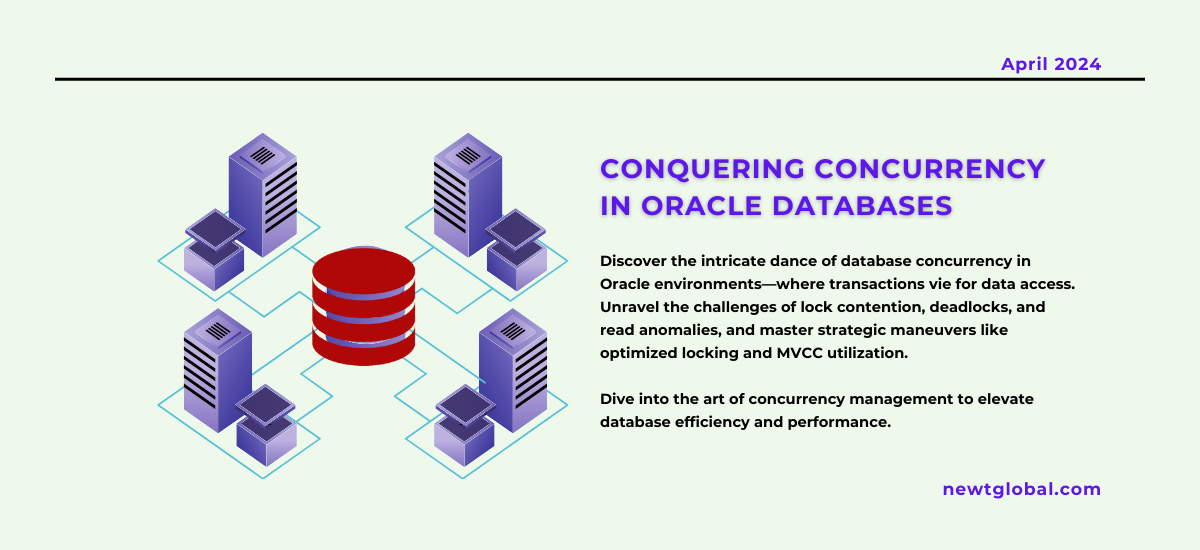
In today’s digital world, databases are more than just places to store information. They are the powerful engines behind the most important applications we use. Oracle is a big name in this area, offering strong tools for dealing with complex applications and lots of transactions, which are crucial for big companies. However, as more people use the database, managing how many people can work with the same data at the same time becomes very complicated. This is like trying to make sure everyone can dance together without stepping on each other’s toes.
Dance of Concurrency
When many people can use the database at the same time, it makes the database work better and helps users do their jobs more efficiently. Oracle uses advanced methods like locking, a special way to keep track of different versions of data (MVCC), and careful control of transaction isolation to balance fast access with keeping the data accurate and consistent.
Conundrums of Concurrency
-
- Lock Contention: This is when different tasks fight over the same data, causing delays.
-
- Deadlocks: A tricky situation where tasks block each other, and no one can move forward.
-
- The Three Big Worries: Dirty reads, non-repeatable reads, and phantom reads are problems that can make the data unreliable.
Fine-Tuning the Concurrency
To handle the complex world of many users efficiently, some smart strategies include:
-
- Better Locking Strategies: Oracle automatically locks data at the row level, but optimizing this process can reduce problems.
-
- Using MVCC: This is like having a time machine, allowing tasks to work with snapshots of data, avoiding the mess of locks.
-
- Short Transactions: Making transactions quick and to the point, so they don’t hold onto locks too long and cause deadlocks.
-
- Using Oracle’s Tools: Oracle has many features and tools, like automatic solutions to deadlocks and the Oracle Enterprise Manager, to help navigate through these challenges.
Wrapping Up
In the big picture of database management, being able to handle many users at once is a key part. By facing these challenges and using the right strategies wisely, database admins and developers can make everything run smoothly and efficiently. As we move into the future of digital technology, mastering this balance is not just a skill, but an art that will shape how databases work.
Unlock the art of managing concurrency in Oracle databases with our expert guidance.
Newt Global DMAP stands as a world-class product designed specifically for the mass migration of Oracle Db to cloud-native PostgreSQL. It’s not just about making the move; it’s about doing it faster, better, and cheaper. If you’re looking to elevate your database capabilities and embrace the future of cloud-native technology, Newt Global DMAP is your key to unlocking that potential.
For more information on how Newt Global DMAP can transform your database migration journey and to explore more innovative solutions, visit us at newtglobal.com. And if you have any questions or need to get in touch, don’t hesitate to reach out at marketing@newtglobalcorp.com.
